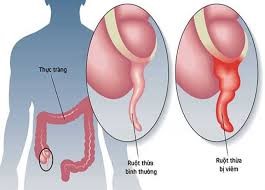0730
- Admit to the surgical floor
- Dextrose 59% and 0.9% sodium chloride to infuse at 125 ml/hr
- Advance diet as tolerated
- Insulin glargine 12 units subcutaneous every 12 hours
- Ceftriaxone 2 g IV every 24 hours for 3 days, first dose given in surgery
- Insulin lispro 1 unit subcutaneously per 15 carbohydrates
- Insulin lispro sliding scale:
180-240 mg/dL (10-13.3 mmol/L)- 1 unit
241-300 mg/dl. (13.4-16.7 mmol/L)-2 units
300-360 mg/dL (16.7-30 mmol/L)-3 units
over 360 mg/dL (30 mmol/L)-call the physician
- Glucagon 1 syringe subcutaneously for blood glucose less than 60 mg/dL (3.3 mmol/L) and unresponsiveness
It is 1800, and the client has a schedule dose of insulin glargine due. The client has a regular diet tray ordered with 60 carbohydrates. The tray has not yet arrived in the room.
For each nursing action below, click to specify If the action is indicated, contraindicated or non-essential.
Restart the IV fluids until the tray arrives
Give insulin lispro 4 units
Verify that the client can count carbohydrates
Give insulin glargine 12 units
Mix the insulin lispro and insulin glargine in one syringe
The Correct Answer is {"A":{"answers":"C"},"B":{"answers":"B"},"C":{"answers":"A"},"D":{"answers":"A"},"E":{"answers":"C"}}
Actions:
- Restart the IV fluids until the tray arrives
Non-essential: Restarting IV fluids is not essential while waiting for a regular diet tray. It's more important to ensure the client receives the correct insulin dose when the meal arrives.
- Give insulin lispro 4 units
Contraindicated: Giving insulin lispro before the client has eaten is contraindicated, as it may lead to hypoglycemia without adequate carbohydrate intake.
- Verify that the client can count carbohydrates
Indicated: Verifying the client's ability to count carbohydrates is essential to ensure they can accurately determine the insulin lispro dose when the meal arrives.
- Give insulin glargine 12 units
Indicated: Giving the scheduled insulin glargine dose as ordered is indicated, provided the client has a regular diet tray ordered with 60 carbohydrates.
- Mix the insulin lispro and insulin glargine in one syringe
Non-essential: Mixing insulin lispro and insulin glargine in one syringe is not typically necessary and may increase the risk of dosing errors. Administering them separately using the appropriate syringes is a safer practice.
Nursing Test Bank
Naxlex Comprehensive Predictor Exams
Related Questions
Correct Answer is ["A","C","D","E","F"]
Explanation
Options A, C, D, E, and F may affect insulin requirements and should be considered in the client's care plan.
The home medications that may affect the amount of insulin needed by the client are:
A. Corticosteroids: Corticosteroids can increase blood glucose levels, which may require an adjustment in insulin dosage.
C. Oral contraceptives: Some oral contraceptives may affect insulin sensitivity, potentially requiring adjustments in insulin dosage.
D. St. John's Wort: St. John's Wort can impact the metabolism of insulin and may lead to fluctuations in blood glucose levels, necessitating adjustments in insulin dosing.
E. Fluconazole: Fluconazole may affect blood glucose levels and may require monitoring and potential adjustments in insulin dosing.
F. Epinephrine: Epinephrine can lead to increases in blood glucose levels, and insulin dosage may need to be adjusted.
B. Ibuprofen: Ibuprofen is not typically associated with significant effects on insulin or blood glucose levels.

Correct Answer is ["200"]
Explanation
To calculate the mL/hr for the ciprofloxacin infusion, you can use the following formula:
ML/hr = Volume (mL)/Time (hr)
In this case:
Volume (mL) = 200 mL (the volume of the IV bag)
Time (hr) = 1 hour (the duration of the infusion)
So, the mL/hr would be:
ML/hr = 200 mL/ 1 hr = 200 mL/hr
Therefore, the nurse should program the infusion pump to deliver 200 mL/hr for the ciprofloxacin infusion.
Whether you are a student looking to ace your exams or a practicing nurse seeking to enhance your expertise , our nursing education contents will empower you with the confidence and competence to make a difference in the lives of patients and become a respected leader in the healthcare field.
Visit Naxlex, invest in your future and unlock endless possibilities with our unparalleled nursing education contents today
Report Wrong Answer on the Current Question
Do you disagree with the answer? If yes, what is your expected answer? Explain.
Kindly be descriptive with the issue you are facing.
